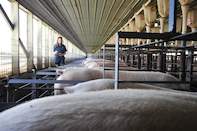
As on the farm, a designated person needs to be appointed to take charge of the implementation and maintenance of the Quality Assurance and Traceability program, who should also inform the South African Pork Producers Organisation (SAPPO) of any changes in farm details.
Standard Operating Procedures need to be developed that comply with the Pork 360 regulations, with the master file being contained at the quality assurance office, as well as a list of registers used at the abattoir, residue testing and other documents, including animal movement certificates and health declarations.
Contingency plans need to be described in the standard operating procedures to ensure correct actions are taken during fire outbreaks, floods, load shedding and staff related issues, such as strikes, illness or absenteeism.
The person in charge of the Quality Assurance and Traceability Program is also responsible for ensuring that employees have the necessary training to implement the standard operating procedures, for example, in terms of animal handling, proper stunning methods, cleaning and sanitation, personal hygiene pest control and routine maintenance and filling of checklists.
All pigs for certification should originate from a valid Pork360 certified producer, with the appropriate records and interventions being taken to ensure traceability throughout the supply chain. The use, application and presence of specified substances and residues need to be monitored and screened. Farms that do not comply with the standards need to be tested weekly at their own cost until the pork tests residue free.
Carcasses need to be labelled correctly and include certain minimum information, relating to the classification, age, weight and so forth of the animal. Strict regulations are also in place to govern the transportation of pigs to ensure humane handling and minimise the possibility of injuries.
 SouthAfrica.co.za offers a guide to pig farming in South Africa. The commercial pig industry in South Africa is relatively small with a few ...
SouthAfrica.co.za offers a guide to pig farming in South Africa. The commercial pig industry in South Africa is relatively small with a few ...